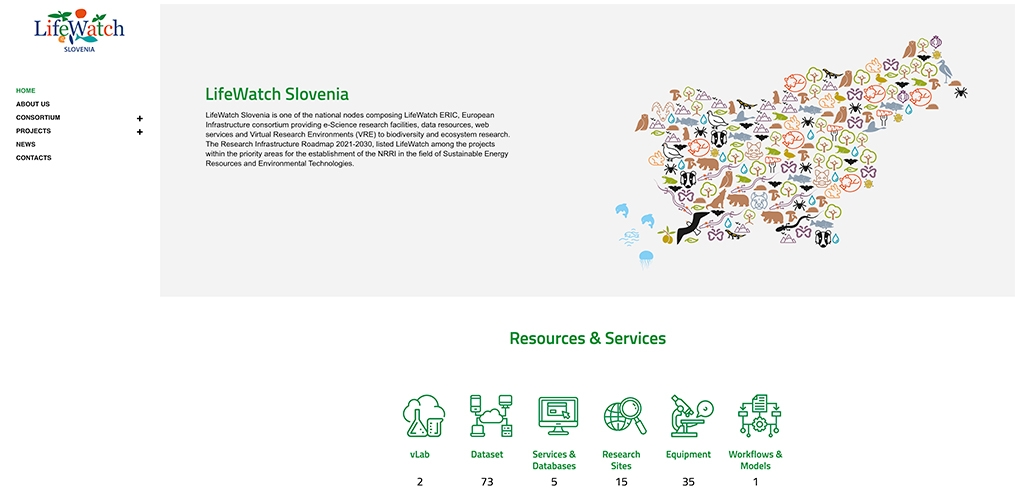
The new LifeWatch Slovenia website is online since 31 May 2023. It provides biodiversity and ecosystem researchers with facilities, data resources, web services and Virtual Research Environments. LifeWatch Slovenia remains fully integrated with LifeWatch ERIC in facilitating open data sharing, aggregation and modelling. Besides that, it offers immediate access to national priority projects, as in the case of karst groundwater habitat research and conservation of that national symbol, Proteus anguinus, the only exclusively cave-dwelling aquatic salamander in Europe.
In 2022, the Government of the Republic of Slovenia adopted the Research Infrastructure Roadmap 2030 (NRRI 2030) in which LifeWatch was listed as a priority area in the field of Sustainable Energy and Environmental Technologies. LifeWatch-SI is also part of the Slovenian Strategy for Smart Specialisation (S4) and Horizon 2020, focusing on the development of technological solutions in the field of biodiversity and socio-ecological research.
Since 2015, the Slovenian Consortium has been promoting the importance of integrating and networking information and data to:
- Coordinate biodiversity research in marine, freshwater and terrestrial ecosystems;
- Plan common access to a vast array of data from various sources and observatories;
- Predict computing capabilities with analytical and modelling tools in virtual laboratories; and
- Support training and educational programs that will enable a proper understanding of biodiversity.
The LifeWatch Slovenia Consortium consists of the ZRC SAZU Karst Research Institute, the National Institute of Biology, the Slovenian Forestry Institute, the Slovenian Natural History Museum, the Škocjan Caves Park, the Tular Cave Laboratory, the University of Ljubljana, the University of Maribor, the University of Nova Gorica, and the University of Primorska. Of these, ZRC SAZU serves as the national coordinator and headquarters of LifeWatch-SI.
For more information, please explore the lifewatch.si website.